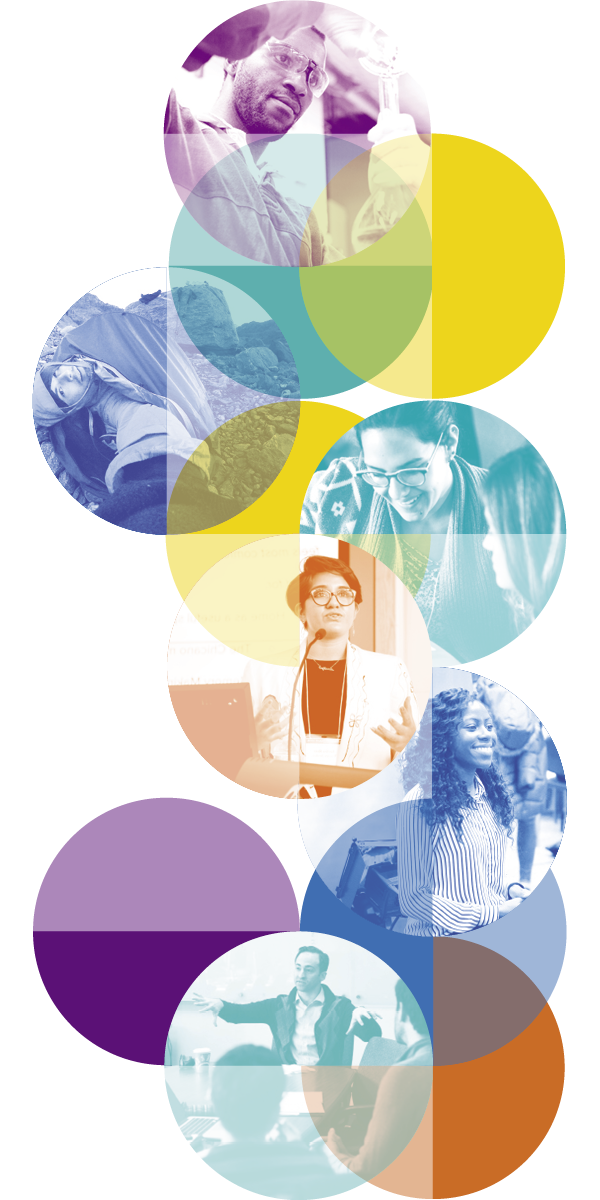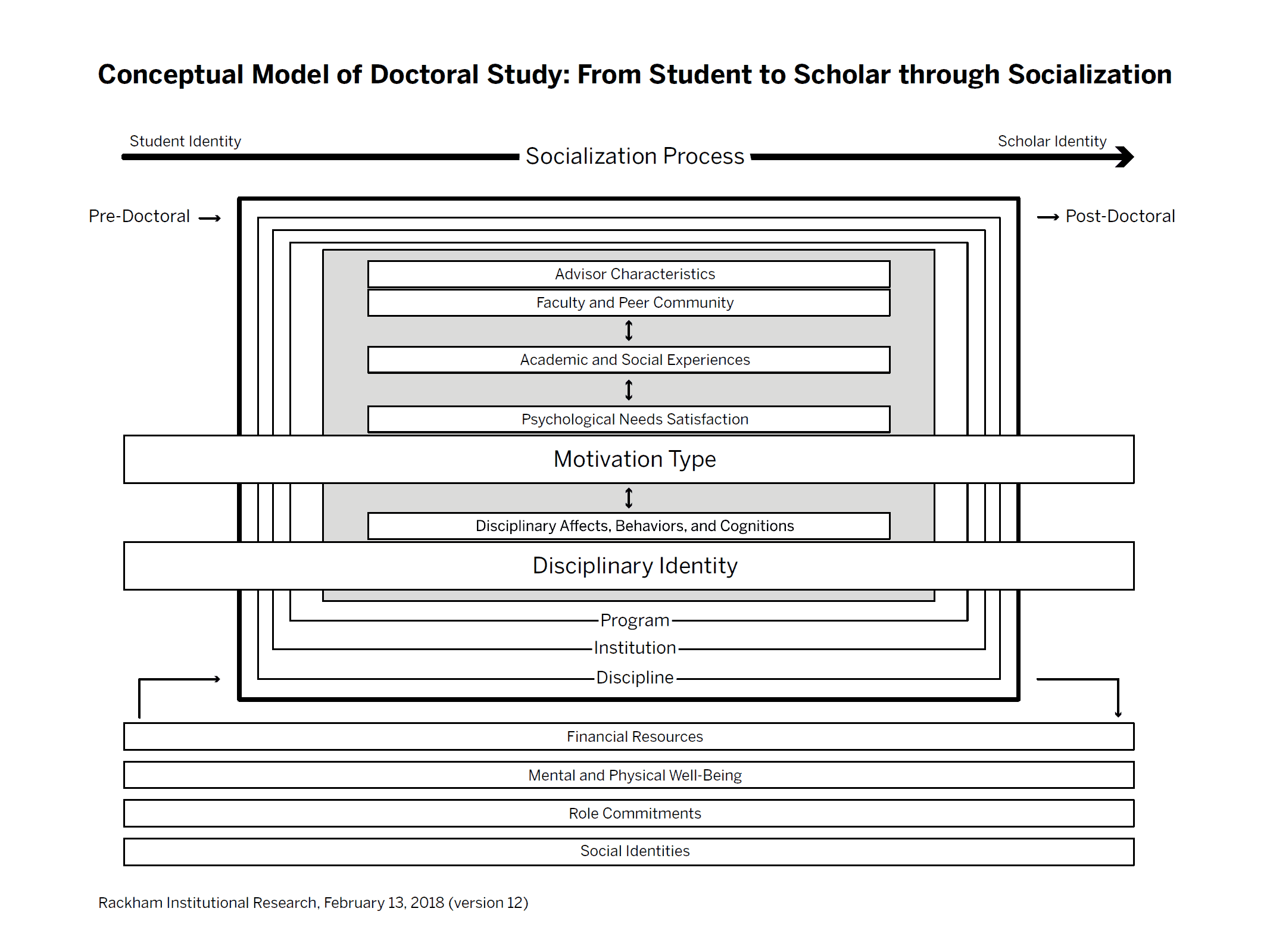Michigan Doctoral Experience Study (MDES): A 3-Year Summary
The Challenge
Supporting and enhancing the experience of doctoral students is a central tenet of the mission of graduate schools and colleges. Because we often lack data that systematically examines how students experience graduate school, our approach is grounded in best guesses and isolated knowledge.
The Rackham Graduate School launched an ambitious study to better capture the experience of doctoral students. By focusing on the process of doctoral education, we can examine the experience of doctoral students over the entire trajectory of their doctoral work and into early career development. We hope this work provides a more systematic understanding of the challenges and successes experienced by doctoral students. This understanding, in turn, can help us develop more targeted programs and initiatives that address the needs and challenges of doctoral students. Concurrently, the grounding of our study posits a theoretical framework that contributes to the literature and provides a testable framework to examine the student experience and the impact various components have on that experience.
Our Approach
Our approach is theoretically rigorous, but grounded in the realities of our mission to understand and enhance the experience of doctoral students. We draw heavily upon theories of socialization into the academy (Gardner, 2007; Tierney, 1997; Weidman & Stein, 2003) to posit that a plausible outcome of doctoral education is the development of an academic identity as a scholar/researcher (Baker & Lattuca, 2010; Hall, 1968; Stewart & Dottolo, 2005). This development takes place over the course of doctoral studies and is influenced by a multitude of factors, some structural, some embedded in the pedagogy and norms of graduate education, and some individually developed over time.
- Structural variables include: the context and climate of the department, institution, and discipline in which the work takes place.
- Embedded variables include: interactions with faculty and peer communities, academic and social experiences facilitated by roles as a doctoral student.
- Individual factors include: goals, motivations, self-beliefs, and identities uniquely belonging to the students.
While we recognize that a feature of doctoral educational research is the prevalent notion that disciplinary differences are abundant (Austin, 2002; Becher, 1981), we posit that these differences exist within the context of more global processes that are consistent across disciplines. As such, our study covers students in all disciplines and tests the hypothesis that the interaction among these set of factors is consistent across the disciplines even if local realities remain uniquely discipline-specific. To account for the developmental approach highlighted, we employ a longitudinal panel approach (Groves et al., 2009). Additionally, to test the hypothesis that different cohorts of doctoral students may experience graduate school differently as changes occur, we add a cohort to our study every year capturing the newly incoming class of Ph.D. students. Our survey is administered incrementally every year to all participants and is completed and validated with yearly focus groups, and sampled pilot studies that focus more closely on specific areas (i.e., mentoring, the experience of international students, etc.).
What We’ve Learned
Stress and Well-Being
Stress and well-being are tightly coupled. We see increases in stress associated with declines in students’ reports of mental and physical health. The relationship is consistent across the disciplines.
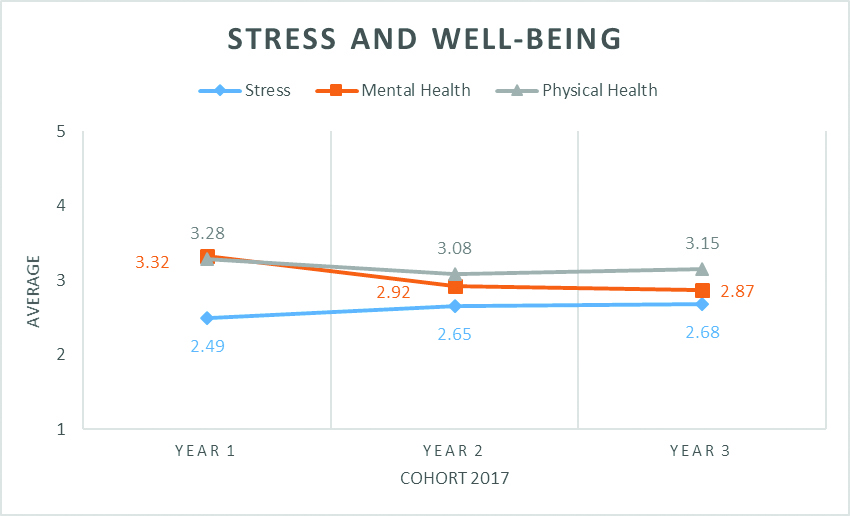
Motivation and Self-Efficacy
We observe slight declines in students’ motivations and self-efficacy. These declines are consistent across all disciplines.
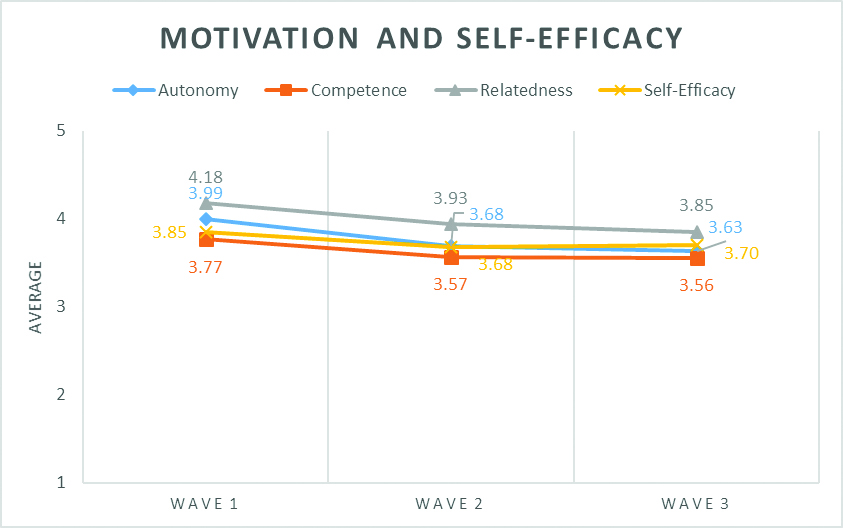
Diciplinary Development
We see consistent increases in overall disciplinary identity across time. This increase holds across all disciplines.
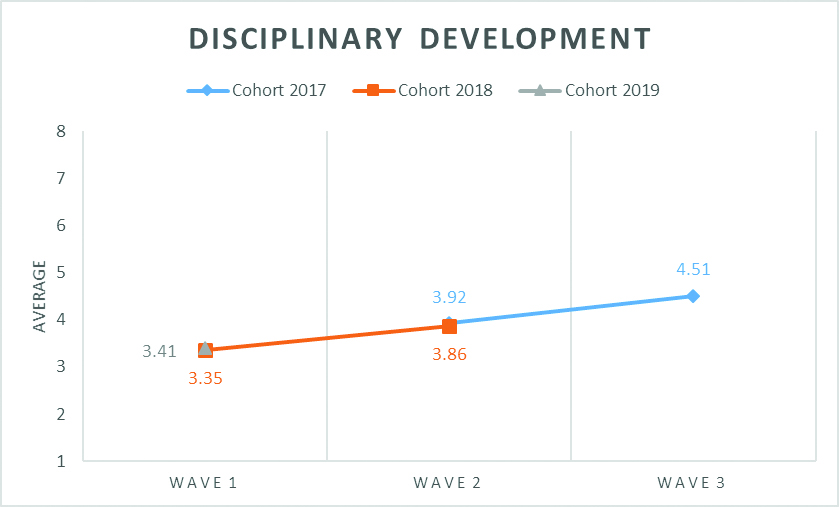
Plan to Pursue Tenure Track
We see major changes in student career plans as they go through the first three years of their doctorate. Plans to pursue tenure-track careers decline with each year. This is one area where findings differ significantly by discipline.
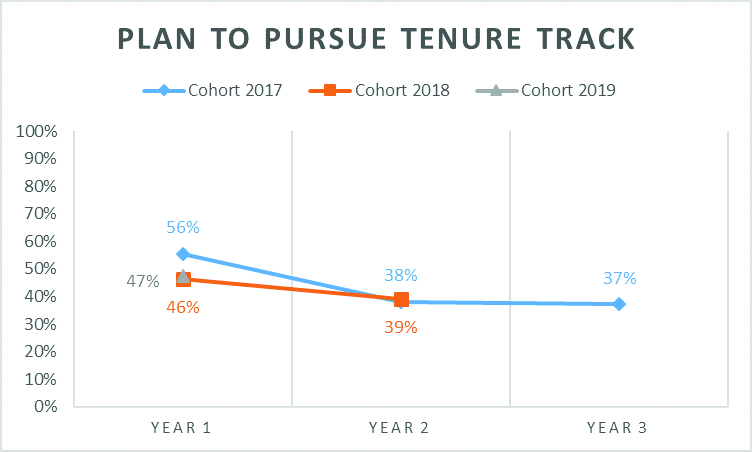
Next Steps
Given the extended time scale of the doctoral student process, we need further observations to examine the later stages of the doctoral process. Of particular interest to our study are how the increased autonomy and independence associated with a dissertation affects student’s identity, motivation, and well-being.
We also believe the study provides a natural launching point to examine the early career transition of Ph.D. recipients. This work is often retrospective and reliant on small sample sizes (see Reybold, 2003 and Hutchins & Rainbolt, 2017). Our study has an opportunity to extend this work with a rich dataset of antecedents and a theorized model of interactions and impacts.
These potential uses highlight the impact to inform the practice and function of the work we do to support doctoral students.
Location
Rackham Graduate School
Contact
John Gonzalez, Director, Institutional Research
Visit
To learn more visit the Michigan Doctoral Experience Study (MDES) page.
